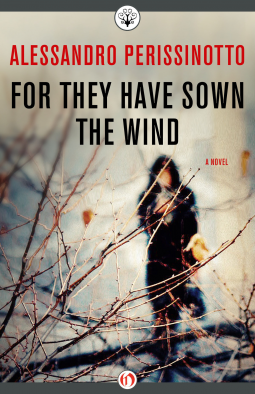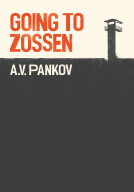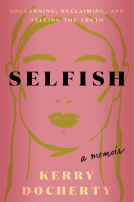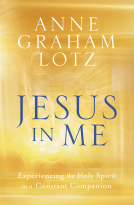
For They Have Sown the Wind
by Alessandro Perissinotto
This title was previously available on NetGalley and is now archived.
Send NetGalley books directly to your Kindle or Kindle app
1
To read on a Kindle or Kindle app, please add kindle@netgalley.com as an approved email address to receive files in your Amazon account. Click here for step-by-step instructions.
2
Also find your Kindle email address within your Amazon account, and enter it here.
Pub Date Sep 16 2014 | Archive Date Dec 16 2014
Description
Giacomo Musso, a thirty-five-year-old teacher, is led by love, or perhaps by chance, to incarceration in the maximum-security wing of the Novara penitentiary. He protests his innocence while holding the newspaper with a photo of the mutilated corpse of his wife. Out of desperation, Giacomo decides to tell the story of his life—that is, the series of events that inevitably led him to this cell. Their marriage was not a red-hot love affair, but rather something that grew slowly and steadily—a love meant to last. He and his wife, Shirin, decided to move back to Molini, the town in the Piedmontese mountains where Giacomo was born, when he grew homesick. Shirin wanted to move to Molini because she needed the security of Giacomo’s roots after escaping from Iran. But even in Molini, she remained a foreigner, treated first with intrusive curiosity and then with mistrust. This nonbeliever, this atheist made the mistake of turning to the elaborate religiosity of her compatriots. Now nothing is left of her or of their love, except for the memories Giacomo writes down in his diary in the hope that perhaps he can create a better ending to the story.
Open Road Media would like to thank you for your interest in this title, and we encourage you to share your thoughts with the book community. We hope you will take your time to post your review on Goodreads or retailer's sites, such as Amazon and Barnes & Noble.
A Note From the Publisher
Advance Praise
No Advance Praise Available
No Advance Praise Available
Marketing Plan
No Marketing Info Available
No Marketing Info Available
Available Editions
| EDITION | Ebook |
| ISBN | 9781480426535 |
| PRICE | $9.99 (USD) |
Average rating from 15 members
Featured Reviews
The book opens with the entry of Giacomo Musso into prison following the death of his wife. His lawyer presents him with photos chronicling the history of he and his wife Shirin's relationship. Giacomo is assigned with the task of reviewing the photos and committing to paper the series of events that resulted in his wife's death. One is left with the sincere feeling that Giacomo considers himself innocent, although his fellow prisoners give him a wide berth and seem terrified of him. The only way to find out what happened is to read on through Giacomo's narration as the true nature of Shirin's death is left a mystery until the very end.
Giacomo hailed from a very small town in Italy called Molini, but relocated to Paris for work reasons. It was there that he met and fell in love with Shirin while working part-time as an “imaginative bartender.” A teacher by nature, he also worked creating science exhibitions for children.
Shirin's parents escaped to France from Iran when they could no longer tolerate its oppressive political climate. Shirin was born in France, but felt deprived of belonging to a generational cultural history like Giacomo. When their romance blossomed, she was attracted to Giacomo's rich culture in Molini where his ancestral home stood since the early 1800's. They married, and at Shirin's insistence they moved into the Musso's ancestral home.
Shirin immersed herself into the culture of her adopted Italian family and all seemed idyllic until her Iranian heritage came into play. Small town politics sparked a chain of events leading to the downhill decline of Giacomo and Shirin's marriage.
The story was very engaging on so many levels; from its description of the quaint Italian town of Molini with its rich culture, to the cultural divide that Shirin experienced from its residents. The story took some surprising twists and turns that caused me to audibly gasp and my eyes to sting with tears. This is an excellent book that deserves a big audience.
 Mandy J, Reviewer
Mandy J, Reviewer
School teacher Giacomo Musso is in prison, accused of having murdered his wife. When he insists that he is innocent, his lawyer arranges for him to be given a series of photographs chronicling his life with Shirin and encourages him to write down exactly what happened. So slowly and carefully, photo by photo, Musso relates the story of his first meeting with Shirin, his love for her and their initially idyllic marriage. Shirin is a completely assimilated Iranian professional woman, settled in France, but once the couple move to the right-wing and intolerant north of Italy all goes horribly wrong.
The book is an examination of both latent and overt racism which can have such a devastating effect on individuals and families. Issues of faith, secularism and radicalisation make this a particularly relevant book for all of us today. It is both thought-provoking and quite chilling. But above all else it’s a moving and poignant love story, a compelling tale of two good people whose lives are turned upside down by prejudice and hate. An extremely enjoyable read.
 Deborah C, Reviewer
Deborah C, Reviewer
5+ stars
Being an attorney, I am rarely at a loss for words. In this case, however, I don't know how any review I can write will do justice to Alessandro Perissinotto's For They Have Sown the Wind. Maybe I should just start as I intend to end: BUY IT. READ IT. DISCUSS IT. ABSORB IT.
Let's get some of the easier points out of the way. The cover is beautiful and perfectly evokes the generally melancholy nature of the narrative. The structure is also perfect; the novel consists primarily of a diary written by Giacomo Musso to assist his state-appointed attorney in defending him against the charge of killing his wife Shirin. Giacomo's entries are prefaced and sparked by a collection of 39 photographs chronicling his relationship with Shirin, from his first sighting of her until their parting shortly before her death. Giacomo's diary is bookended by first-person statements from his lawyer, opening and closing Giacomo's story. There are two plot twists at the end of the book, neither of which I anticipated but which I can say, upon further reflection, are the only true way the story could have ended.
Now for the more difficult part. This version of For They Have Sown the Wind is an English translation of a 2011 Italian original. (If there is a flaw in the writing, it is the unexpected tense changes, but I don't know if they are the fault of the author or the translator. I also wish the notes contained an English translation of not some, but all of the French and Italian sentences.) Its theme has not suffered from the passage of time, however; if anything it is more timely now, while America is still embroiled in the race conflict generated by the Ferguson, Missouri shooting and the death of Eric Garner in New York. Although the tension in For They Have Sown the Wind is between Islam and "traditional" Italian Christianity (hence the title's reference to Hosea 8:7), not between black and white, at bottom the issue is the same: are humans destined to forever divide ourselves between "us" and "them"? How do we balance two competing interests, both of which are legitimate and worthy of protection: the desire of the "other" to be treated with dignity and respect and to retain at least some elements of her original culture versus that of the predominant culture to maintain its way of life in the face of what it perceives as an attempt to supplant it?
As Giacomo says, "the rhetoric of migration only knows compassion for those who travel and not for those who, while remaining at home, experience disruption to their lives." Nevertheless, I can't help wondering how much of what Shirin says is true:
It's true, I don't have faith, but Islam is the glue, it's our cultural identity. And you know what it was that made us discover that we had a real cultural identity? It was your hatred, your contempt. It's your hatred that has brought us together. We know who we are, because you have told us again and again that we were not like you. And you said that with your laws, your nativity scenes, your crucifixes, your aggressive mayors, you made it clear that, even though we were born here, we were different. So we talked and we realized it was true, you're right: we are different, but between us we are equal.
Have we created a self-fulfilling prophecy?
Hopefully, Open Road Integrated Media will issue a reading guide with further resources and questions for discussion. Earlier this year, I reviewed The Tyrant's Daughter, by J.C. Carleson, which raised many of the same issues from an adolescent perspective; it would make a great companion read to bring multiple generations into this dialogue.
So, as I said at the beginning of this review, here is my verdict: BUY IT. READ IT. DISCUSS IT. ABSORB IT.
I received a free copy of For They Have Sown the Wind through NetGalley in exchange for an honest review.
Readers who liked this book also liked:
Rachel Joyce
Historical Fiction, Literary Fiction, Women's Fiction


















